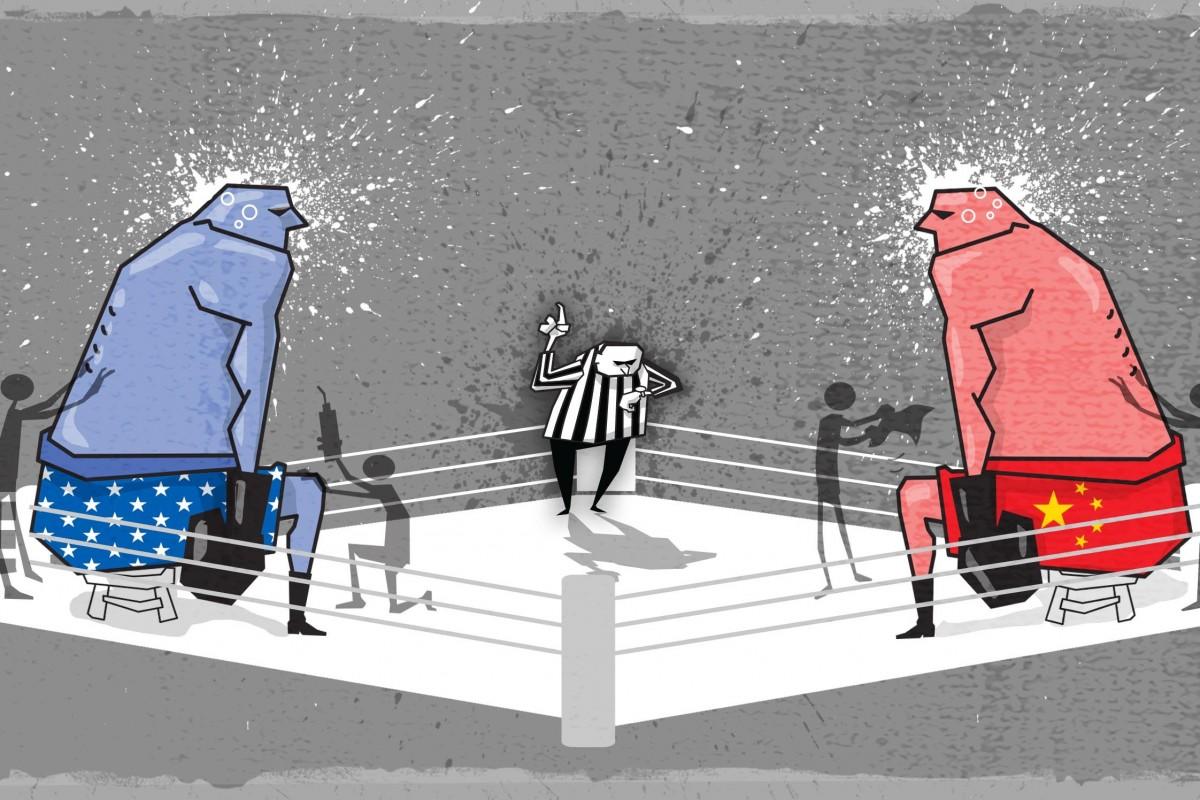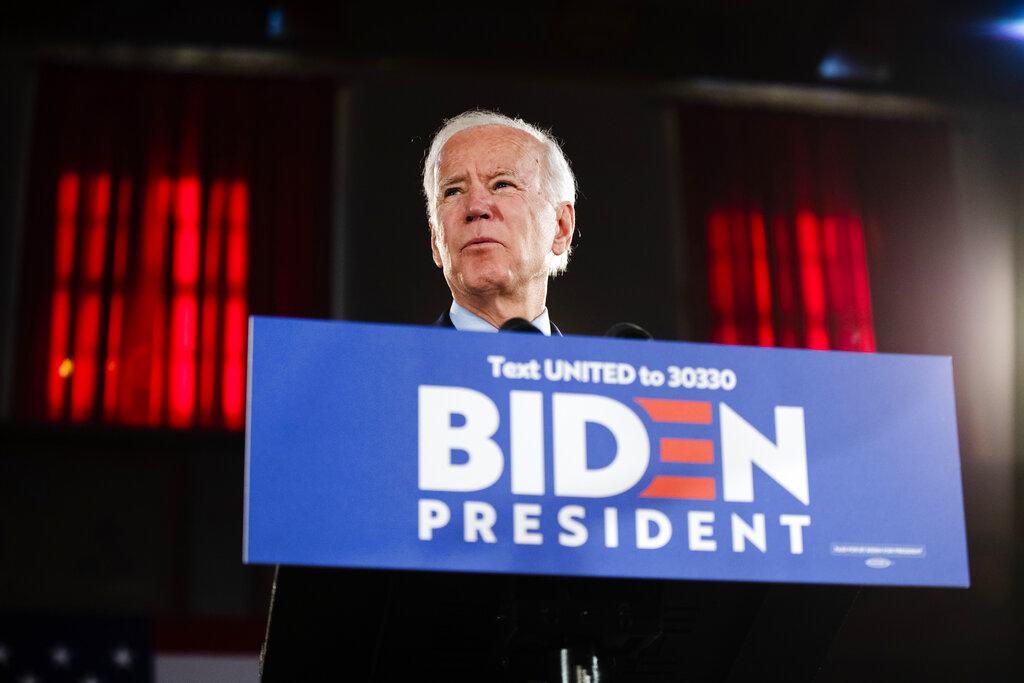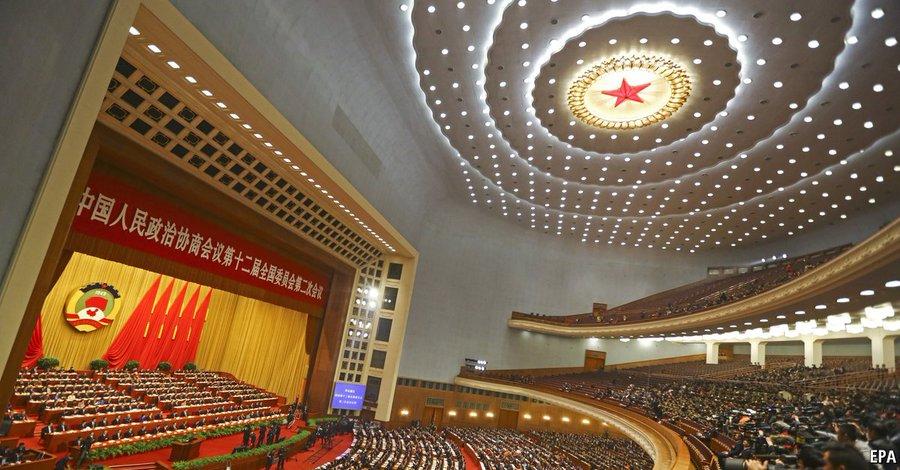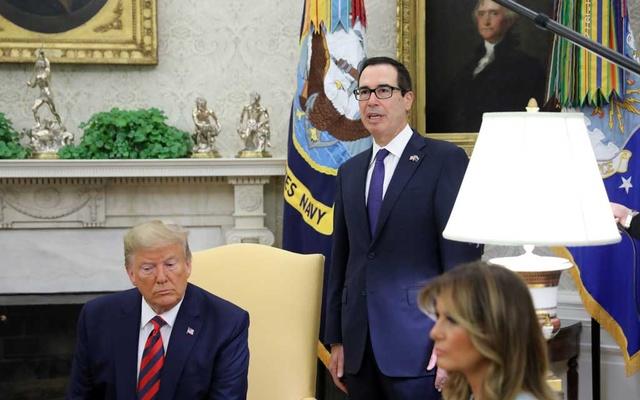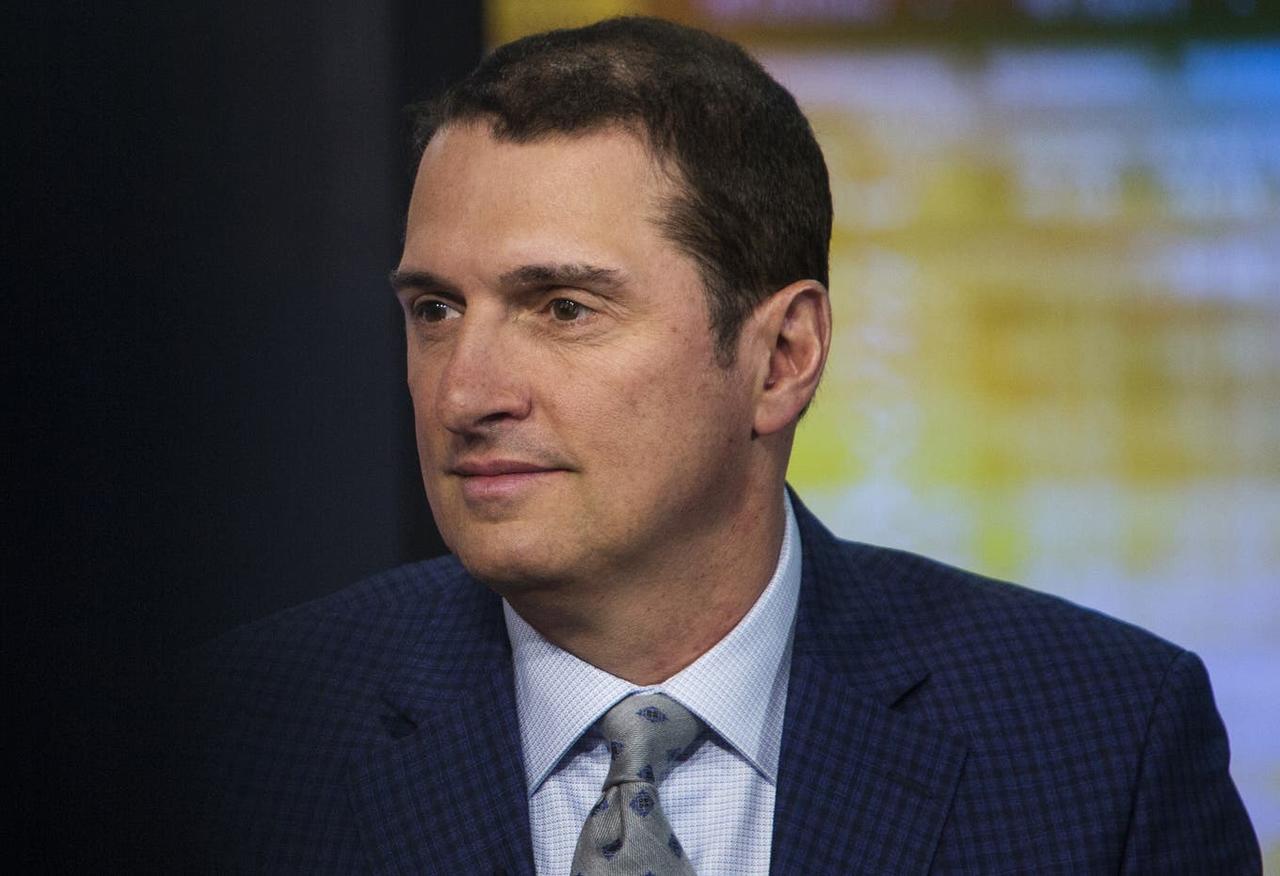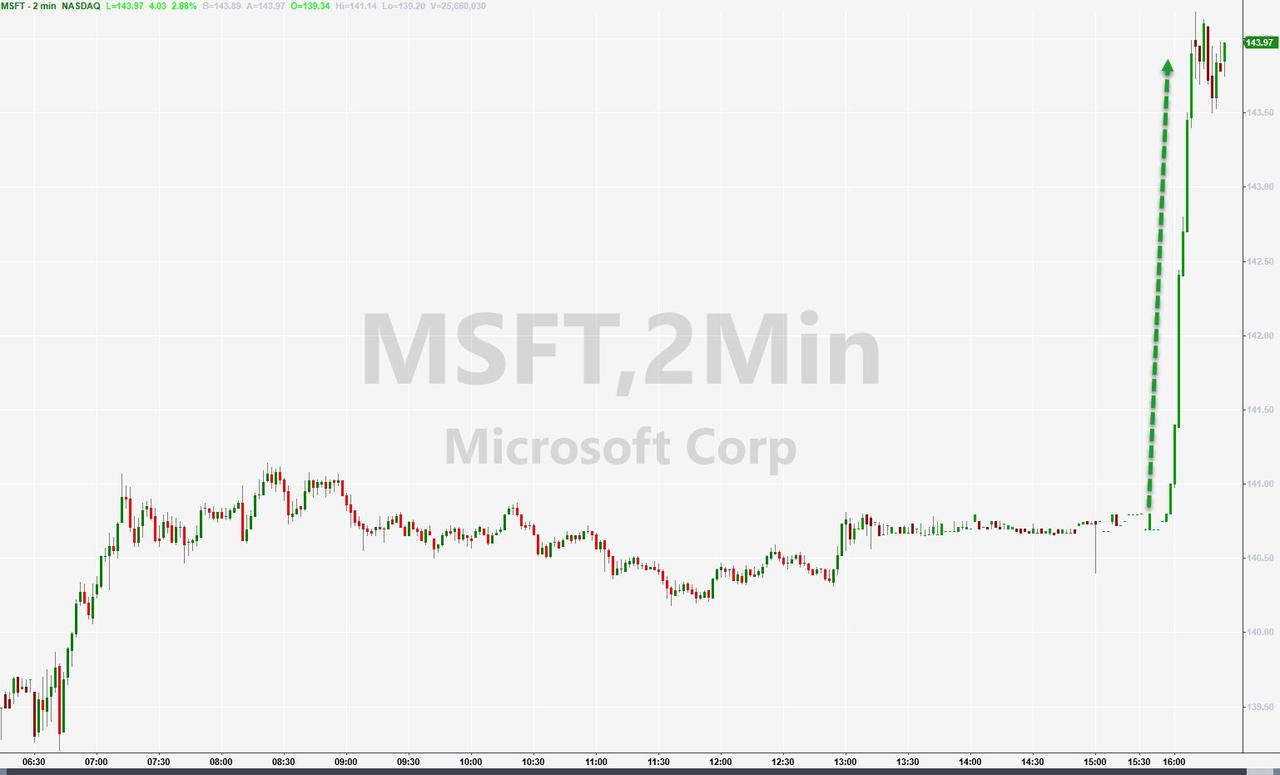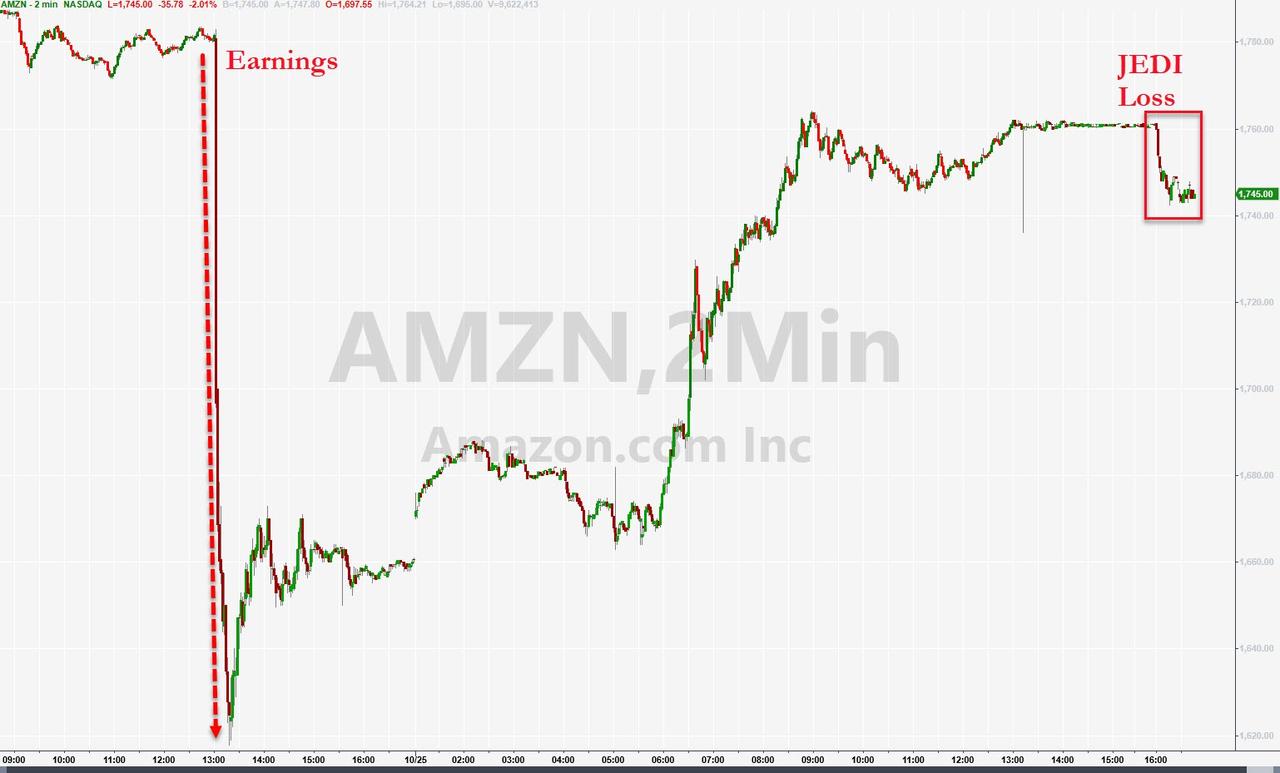Can The US Beat China In A “Trade War”?
Authored by Andre Vltcheck via Off-Guardian.org,
It is very popular these days to talk and write about the “trade war” between the United States and China. But is there really one raging? Or is it, what we are witnessing, simply a clash of political and ideological systems: one being extremely successful and optimistic, the other depressing, full of dark cynicism and nihilism?
In the past, West used to produce almost everything. While colonizing the entire planet (one should just look at the map of the globe, between the two world wars), Europe and later the United States, Canada and Australia, kept plundering all the continents of natural resources, holding hundreds of millions of human beings in what could be easily described as ‘forced labor’, often bordering on slavery.
Under such conditions, it was very easy to be ‘number one’, to reign without competition, and to toss around huge amounts of cash, for the sole purpose of indoctrinating local and overseas ‘subjects’ on topics such as the ‘glory’ of capitalism, colonialism (open and hidden), and Western-style ‘democracy’.
It is essential to point out that in the recent past, the global Western dictatorship (and that included the ‘economic system) used to have absolutely no competition. Systems that were created to challenge it, were smashed with the most brutal, sadistic methods. One only needs recall invasions from the West to the young Soviet Union, with the consequent genocide and famines. Or other genocides in Indochina, which was fighting its wars for independence, first against France, later against the United States.
*
Times changed. But Western tactics haven’t.
There are now many new systems, in numerous corners of the world. These systems, some Communist, others socialist or even populist, are ready to defend their citizens, and to use the natural resources to feed the people, and to educate, house and cure them.
No matter how popular these systems are at home, the West finds ways to demonize them, using its well-established propaganda machinery. First, to smear them and then, if they resist, to directly liquidate them.
As before, during the colonial era, no competition has been permitted. Disobedience is punishable by death.
Naturally, the Western system has not been built on excellence, hard work and creativity, only. It was constructed on fear, oppression and brutal force. For centuries, it has clearly been a monopoly.
*
Only the toughest countries, like Russia, China, Iran, North Korea or Cuba, have managed to survive, defending they own cultures, and advancing their philosophies.
To the West, China has proved to be an extremely tough adversary.
With its political, economic, and social system, it has managed to construct a forward-looking, optimistic and extraordinarily productive society. Its scientific research is now second to none. Its culture is thriving. Together with its closest ally, Russia, China excels in many essential fields.
That is precisely what irks, even horrifies the West.
For decades and centuries, Europe and the United States have not been ready to tolerate any major country, which would set up its own set of rules and goals.
China refuses to accept the diktat from abroad. It now appears to be self-sufficient, ideologically, politically, economically and intellectually. Where it is not fully self-sufficient, it can rely on its friends and allies. Those allies are, increasingly, located outside the Western sphere.
*
Is China really competing with the West? Yes and no. And often not consciously.
It is a giant; still the most populous nation on earth. It is building, determinedly, its socialist motherland (applying “socialism with the Chinese characteristics” model). It is trying to construct a global system which has roots in the thousands of years of its history (BRI – Belt and Road Initiative, often nicknamed the “New Silk Road”).
Its highly talented and hardworking, as well as increasingly educated population, is producing, at a higher pace and often at higher quality than the countries in Europe, or the United States. As it produces, it also, naturally, trades.
This is where the ‘problem’ arises. The West, particularly the United States, is not used to a country that creates things for the sake and benefit of its people. For centuries, Asian, African and Latin American people were ordered what and how to produce, where and for how much to sell the produce. Or else!
Of course, the West has never consulted anyone. It has been producing what it (and its corporations) desired. It was forcing countries all over the world, to buy its products. If they refused, they got invaded, or their fragile governments (often semi-colonies, anyway) overthrown.
The most ‘terrible’ thing that China is doing is: it is producing what is good for China, and for its citizens.
That is, in the eyes of the West, unforgiveable!
*
In the process, China ‘competes’. But fairly: it produces a lot, cheaply, and increasingly well. The same can be said about Russia.
These two countries are not competing maliciously. If they were to decide to, they could sink the US economy, or perhaps the economy of the entire West, within a week.
But they don’t even think about it.
However, as said above, to just work hard, invent new and better products, advance scientific research, and use the gains to improve the lives of ordinary people (they will be no extreme poverty in China by the end of 2020) is seen as the arch-crime in London and Washington.
Why? Because the Chinese and Russian systems appear to be much better, or at least, simply better, than those which are reigning in the West and its colonies. And because they are working for the people, not for corporations or for the colonial powers.
And the demagogues in the West – in its mass media outlets and academia – are horrified that perhaps, soon, the world will wake up and see the reality. Which is actually already happening: slowly but surely.
*
To portray China as an evil country, is essential for the hegemony of the West. There is nothing so terrifying to London and Washington as the combination of these words: “Socialism/ Communism, Asian, success”. The West invents new and newer ‘opposition movements’, it then supports them and finances them, just in order to then point fingers and bark: “China is fighting back, and it is violating human rights”, when it defends itself and its citizens. This tactic is clear, right now, in both the northwest of the country, and in Honk Kong.
Not everything that China builds is excellent. Europe is still producing better cars, shoes and fragrances, and the United States, better airplanes. But the progress that China has registered during the last two decades, is remarkable. Were it to be football, it is China 2: West 1.
Most likely, unless there is real war, that in ten years, China will catch up in many fields; catch up, and surpass the West. Side by side with Russia.
It could have been excellent news for the entire world. China is sharing its achievements, even with the poorest of the poor countries in Africa, or with Laos in Asia.
The only problem is, that the West feels that it has to rule. It is unrepentant, observing the world from a clearly fundamentalist view. It cannot help it: it is absolutely, religiously convinced that it has to give orders to every man and woman, in every corner of the globe.
It is a tick, fanatical. Lately, anyone who travels to Europe or the United States will testify: what is taking place there is not good, even for the ordinary citizens. Western governments and corporations are now robbing even their own citizens. The standard of living is nose-diving.
China, with just a fraction of the wealth, is building a much more egalitarian society, although you would never guess so, if you exclusively relied on Western statistics.
*
So, “trade war” slogans are an attempt to convince the local and global public that “China is unfair”, that it is “taking advantage” of the West. President Trump is “defending” the United States against the Chinese ‘Commies’. But the more he “defends them”, the poorer they get. Strange, isn’t it?
While the Chinese people, Russian people, even Laotian people, are, ‘miraculously’, getting richer and richer. They are getting more and more optimistic.
For decades, the West used to preach ‘free trade’, and competition. That is, when it was in charge, or let’s say, ‘the only kid on the block’.
In the name of competition and free trade, dozens of governments got overthrown, and millions of people killed.
And now?
What is China suppose to do? Frankly, what?
Should it curb its production, or perhaps close scientific labs? Should it consult the US President or perhaps British Prime Minister, before it makes any essential economic decision? Should it control the exchange rate of RMB, in accordance with the wishes of the economic tsars in Washington? That would be thoroughly ridiculous, considering that (socialist/Communist) China will soon become the biggest economy in the world, or maybe it already is.
There is all that abstract talk, but nothing concrete suggested. Or is it like that on purpose?
Could it be that the West does not want to improve relations with Beijing?
On September 7, 2019, AP reported:
White House economic adviser Larry Kudlow compared trade talks with China on Friday to the U.S. standoff with Russia during the Cold War…
“The stakes are so high, we have to get it right, and if that takes a decade, so be it,” he said.
Kudlow emphasized that it took the United States decades to get the results it wanted with Russia. He noted that he worked in the Reagan administration: “I remember President Reagan waging a similar fight against the Soviet Union.”
Precisely! The war against the Soviet Union was hardly a war for economic survival of the United States. It was an ideological battle, which the United States, unfortunately won, because it utilized both propaganda and economic terror (the arms race and other means).
Now, China is next on the list, and the White House is not even trying to hide it.
But China is savvy. It is beginning to understand the game. And it is ready, by all means, to defend the system which has pulled almost all its citizens out of misery, and which could, one day soon, do the same for the rest of the world.
Tyler Durden
Fri, 10/25/2019 – 22:40
via ZeroHedge News https://ift.tt/2BIrN1f Tyler Durden
